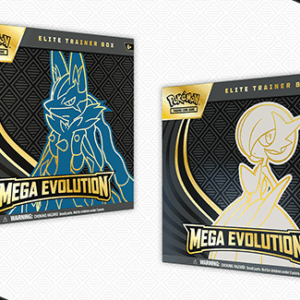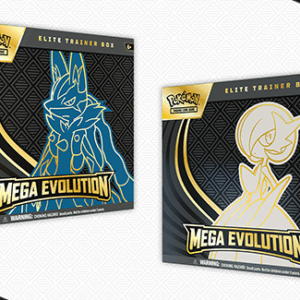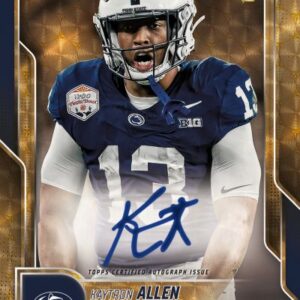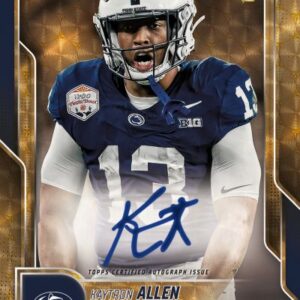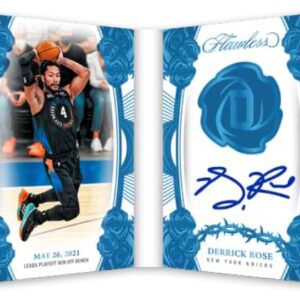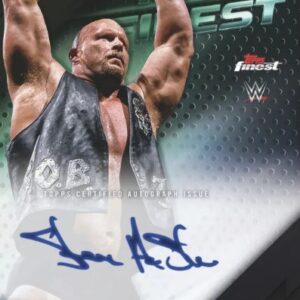In an eye-catching highlight of the collectibles market, a box of the iconic 1967 Wacky Packages stickers recently fetched a jaw-dropping $79,300 at Heritage Auctions. This sale marks a milestone for fans of the nostalgic parody stickers, setting a new high watermark for the franchise and eclipsing the previous record of $63,084 set just last year. This achievement underscores the vibrant demand for rare non-sports collectibles—a field that has often played second fiddle to sports memorabilia but is increasingly stepping into its own spotlight.
The brainchild of Topps, Wacky Packages debuted in 1967, featuring imaginative, tongue-in-cheek parodies of well-known grocery brands. These sassy stickers transformed ubiquitous household names through the delightful lens of cartoon-inspired creativity. Boasting illustrations from the illustrious Art Spiegelman—famed for his future Pulitzer-winning graphic novel, Maus—the artwork alone adds to their historical allure. These stickers captivated the imagination of children, who delighted in punching them out and slapping them onto any available surface, thanks to their lick-and-stick functionality.
However, the irreverent fun of the Wacky Packages was not without its fair share of drama. Companies such as Ritz, Jolly Green Giant, Morton Salt, and 7-Up, less than amused at their satirical portrayals, opted to take legal action. In response to this corporate pushback, Topps found itself obliged to modify the collection, swapping out around a dozen cards and, thus, expanding the set from 44 to 56 cards. Nonetheless, the intrigue only fueled the brand’s following, leading Topps to innovate further with releases like “Wacky Ads” in 1969.
Fast forward to 1973, and a reinvigorated Topps rolled out peel-and-stick stickers, firmly planting Wacky Packages as a staple of schoolyard trade-offs among young collectors. During its prime, these amusing collectibles cleverly vied for attention against the perennially popular baseball cards.
Although the series paused production from 1992 until 2004, the cultural fondness for Wacky Packages never waned. Over the years, the stickers made sporadic but warmly received comebacks, further deepening their niche yet fervent fanbase composed of both devoted collectors and enthusiasts of pop culture history.
The recent record-setting auction serves as a testament to the enduring allure of vintage non-sports cards and memorabilia—particularly those that capture the zeitgeist of earlier times or hold a significant place in the landscape of nostalgia and pop culture history. With an interest that roars rather than dwindles, collectors find themselves gravitating to these artifacts, seeing them as not only cherished childhood mementos but also appreciating investments akin to fine wine and sports collectibles.
Beyond the buzz of the auction room, this sale’s significance lies in more than mere numbers. It’s a vibrant reminder of the intrinsic value and emotional connection tethered to such collectibles. Many bidders and onlookers recognize the role these stickers have played in their own lives, evoking memories of carefree, simpler days. The boxes, profoundly untouched and offering a sweet time-capsule-like glimpse into a whimsical past, echo a universal yearning for nostalgia—a steadfast companion through the ever-evolving landscape of adulthood.
For collectors, the pursuit often transcends monetary value. It’s a journey fueled by intrigue and a shared admiration for a piece of cultural iconography that never entirely goes out of style. With each sticker bearing a story, the exchange of Wacky Packages taps into a collective zeitgeist of camaraderie and shared joy. In securing one of these rarities, collectors own a piece of that communal history—a reminder of playfulness that transcends the calendar pages.
Heritage Auctions’ record-breaking event emphasizes a broader trend: the burgeoning collectibles market is not bound merely by homerun balls and rookie cards. Rather, it’s an evolving celebration of creativity, satire, and cultural connection. The magnetic charm of Wacky Packages lies in their bold irreverence, humor, and enduring appeal, beckoning both avid collectors and those seeking to reclaim a sliver of their past.
In a world where the past is increasingly cherished, the auction of the 1967 Wacky Packages shines brightly, ushering in renewed appreciation for the quirky courage of artists and creators who dared to poke fun at convention, proving once more that the art of parody remains a timeless treasure.

